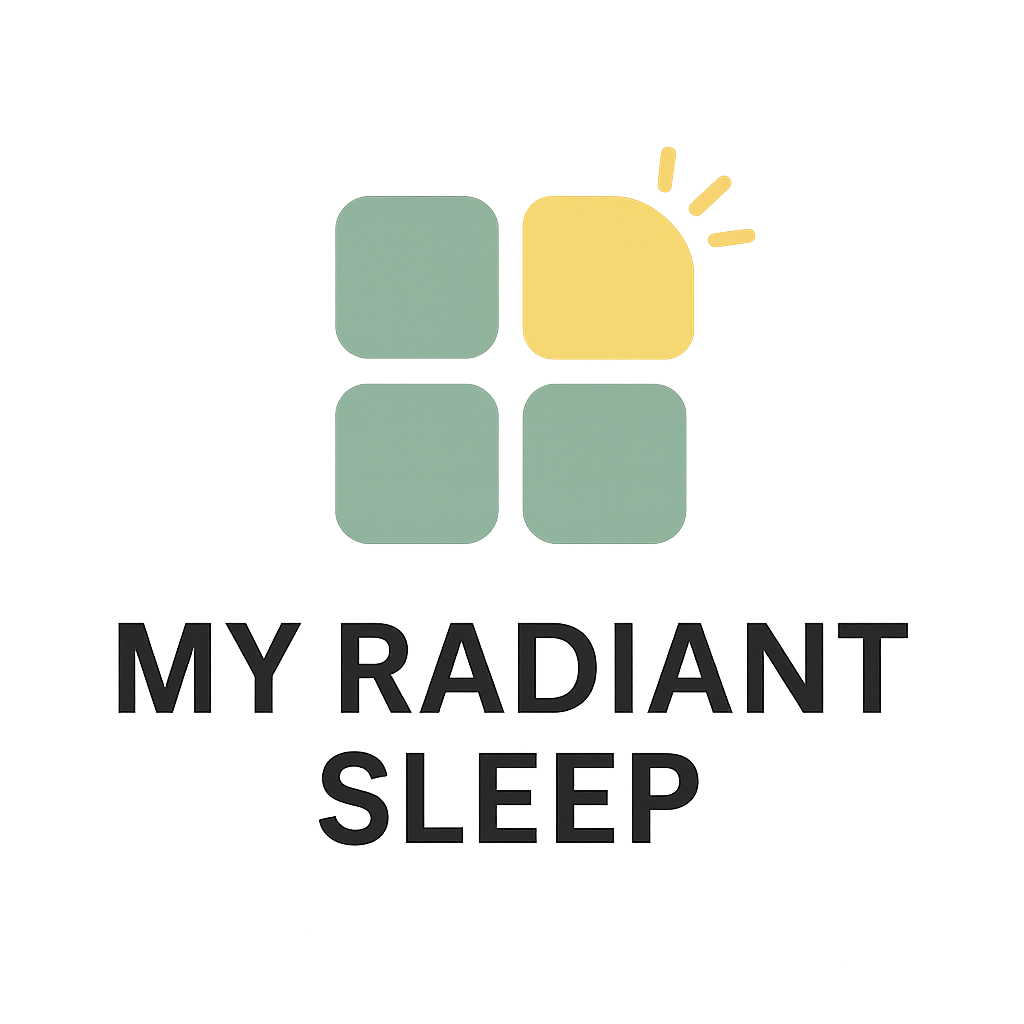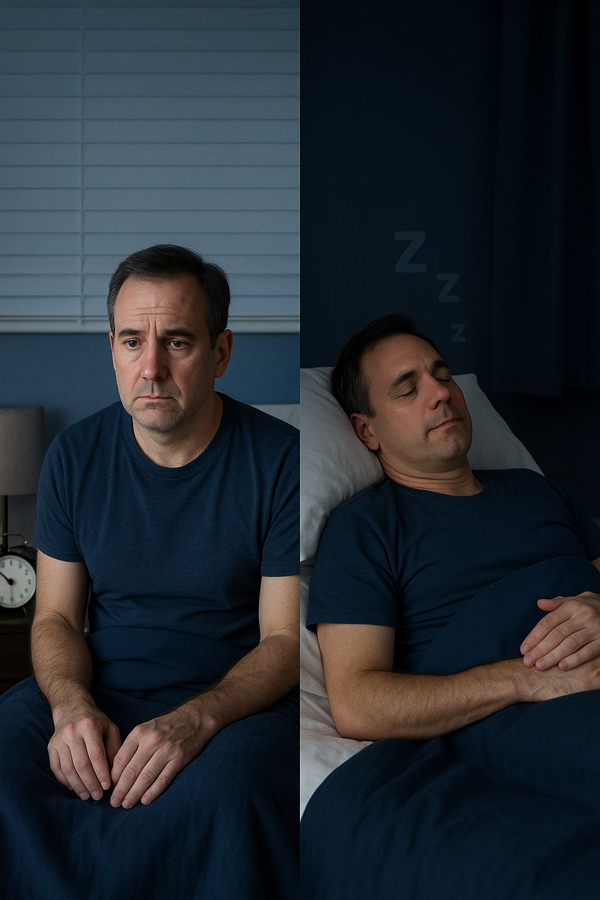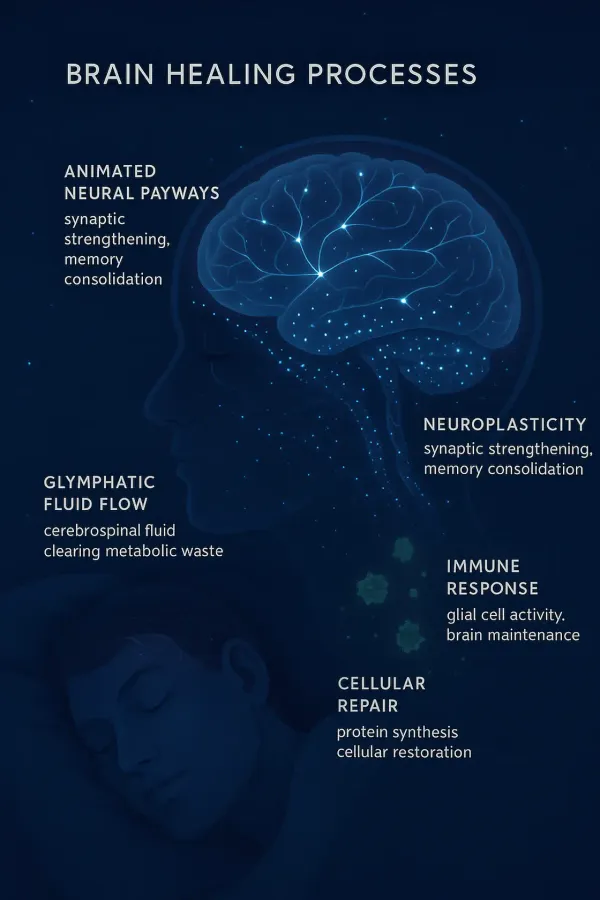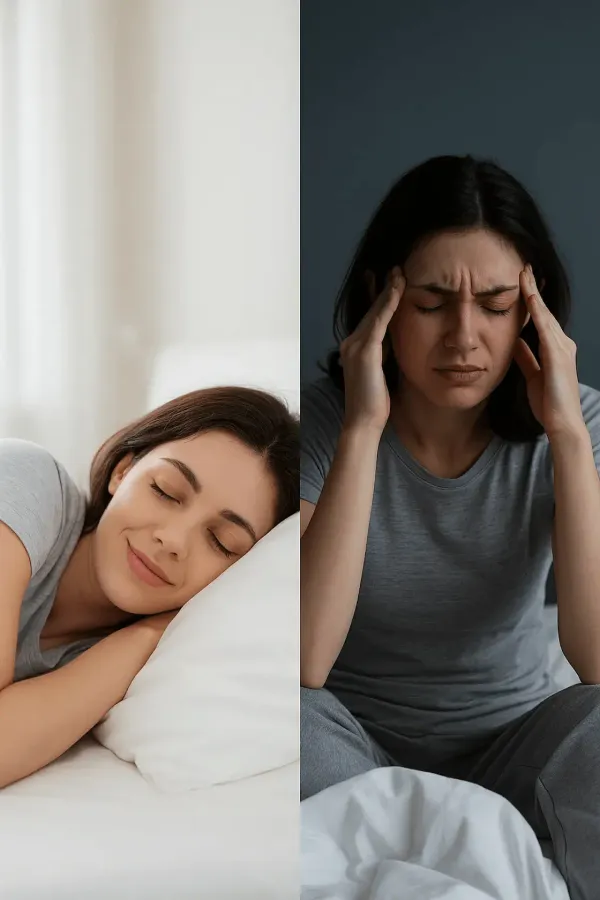Unexplained Muscle Pain in Arms and Legs at Night Explained
Waking up to achy arms or throbbing legs is weird, especially when rest should be the answer, not the problem.
Unexplained nighttime muscle pain is more common than you think and may be a sign of something that needs attention.
Whether it’s a minor annoyance or intense discomfort that’s ruining your sleep, understanding the causes and knowing when to get help is key.
This comprehensive guide is here to cover the triggers, symptoms, treatments, and expert-backed prevention tips to help you manage and reduce pain. Read on with confidence—and share with someone who needs answers too.
What is Nighttime Muscle Pain? A Look at Body Aches and Discomfort

Nighttime muscle pain is discomfort or aches that occur during rest, often in the upper arms or legs.
This pain and stiffness can come from soft tissues, joints, or blood vessels. While it may feel like minor aches, it can escalate into intense pain that affects body temperature and sleep.
Several factors can cause nighttime muscle pain, including the type, cause, and severity of the pain.
According to experts at Cleveland Clinic, muscle pain—or myalgia—can be caused by overuse, injury, infections, or a chronic condition, which is a long-term health issue that may require long-term management.
Key Features
- Pain intensity: Ranges from mild stiffness to sharp, shooting pains.
- Location: Can affect one or both sides and may move between arms and legs.
- Duration: Lasts from a few minutes to several hours and often disrupts sleep.
- Associated symptoms**: Cramping, twitching, numbness, or tingling.
Common Causes of Nighttime Muscle Pain and Triggers, Like Poor Blood Flow and Chronic Conditions

Understanding why your muscles ache at night is the first step to relief. Musculoskeletal pain is a broad term that encompasses discomfort in muscles, tendons, and bones, and can often occur at night.
Remaining inactive or holding a position for an extended period can cause muscle cramps and discomfort during the night. Here are the most common culprits.
Overuse and Fatigue
- Physical overexertion during the day can cause delayed onset muscle soreness (DOMS). Exercising intensely or without proper preparation can cause muscle fatigue and soreness.
- Overuse or excessive exercise can sometimes cause muscle damage, which may lead to pain at night.* Repetitive activities like typing or running strain specific muscle groups.
If muscle discomfort worsens at night, try creating the ideal sleep environment that reduces pressure points and encourages proper spinal and limb alignment.
Muscle Cramps and Spasms
- Cleveland Clinic notes that dehydration, electrolyte imbalances, and poor circulation often trigger nighttime cramps. Pain may become more noticeable or severe during these nighttime cramps.
- Common in the calves, hamstrings, or feet, these sudden contractions can wake you up. Cramps can get worse at night and disrupt sleep.
Poor Sleep Posture
- Sleeping in an awkward position for hours can compress nerves or reduce blood flow.
- Prolonged immobility can stiffen muscles, especially in older adults.
Poor Blood Flow and Circulatory Problems
- According to the Mayo Clinic, claudication (pain due to narrowed arteries) can cause leg aches at night.
- Peripheral arterial disease, a condition caused by blocked arteries, can also cause leg pain at night. This disease is associated with poor circulation and may require professional diagnosis and treatment to address the underlying blockage.

Fibromyalgia, Chronic Pain, and Other Medical Conditions
- As explained by Versus Arthritis, fibromyalgia causes widespread pain and heightened sensitivity. Fibromyalgia can cause many symptoms, including widespread pain, fatigue, and sleep disturbances.
- Chronic fatigue syndrome and rheumatoid arthritis can also manifest as nighttime pain. In chronic fatigue syndrome, unexplained fatigue is often the main symptom of this condition.
Neurological Causes, Including Lyme Disease and Ankylosing Spondylitis
- Healthline says neuropathy, or nerve damage, is a potential reason for leg weakness and aching.
- Sharp, stabbing sensations, numbness, or tingling are often characteristic of nerve pain associated with neuropathy.
understanding why we sleep is key to uncovering how sleep disturbances may contribute to chronic muscle pain, tension, and nighttime discomfort in both the arms and legs.
Bottom Line:
Common triggers include spinal stenosis, certain foods, high blood pressure, and infections such as Lyme disease or Rocky Mountain spotted fever, which can be transmitted through a tick bite.
Overuse, immune system responses, or underlying health problems can also cause sore muscles. Even a slight change in medication dose can cause your body to experience unexpected pain.
The Dormeo topper for pressure relief offers a balance of firmness and contouring that many sleepers say helps relieve nighttime hip, leg, and shoulder discomfort.
Symptoms and When to See a Doctor for Chronic Pain or Body Aches

A burning sensation, persistent joint pain, or pain that causes stiffness may indicate a more serious underlying issue. If you experience pain that worsens over time or is accompanied by symptoms such as swelling or weakness, consult a doctor.
Serious Warning Signs
While many causes of nighttime muscle pain are harmless, some are urgent. See a doctor if you experience:
- Sudden, severe pain with no clear cause
- Swelling, redness, or warmth in the limb (possible clot)
- Weakness or inability to move the limb
According to Medical News Today, these could indicate infections, vascular issues, or neurological emergencies.
My Verdict
If nighttime muscle pain interferes with daily activities, lasts more than a few weeks, or gets worse suddenly, don’t ignore it. A doctor’s evaluation can rule out serious conditions and guide treatment.
Proper core sleep and deep recovery are essential for cellular repair, muscle restoration, and minimizing nighttime pain linked to restless or fragmented sleep.
Treatments and Remedies for Joint Pain, Soreness, and Delayed Onset Muscle Soreness

Home Remedies
- Apply heat or cold packs to relax tense muscles.
- Stretch gently before bed, focusing on any areas that need attention.
- Use foam rollers or massage tools to break up tight knots.
OTC Relief for Joint Pain and Muscle Soreness
- WebMD recommends acetaminophen (such as Tylenol) or ibuprofen for occasional aches.
- Be cautious with long-term use, as it can have side effects.
Topical Solutions
- Menthol-based creams provide cooling relief.
- Capsaicin creams reduce chronic pain sensitivity.
Sleep Aids and Supplements to Ease Body Aches and Improve Blood Flow
Women’s Health Magazine recommends magnesium or melatonin for improving sleep quality.
- Herbal teas and relaxation techniques can also promote restfulness.
Treatment ranges from over-the-counter pain relief to prescription medications. Heat packs can soothe sore muscles.
For individuals with chronic conditions, adjust medication doses or treat infections, such as Lyme disease. Always tailor remedies to the medical term or diagnosis involved.

Prevention Strategies to Reduce Body Aches, Improve Blood Flow, and Avoid Chronic Pain
Sleep Environment
- Invest in a supportive mattress and pillow to maintain proper alignment.
- Keep the bedroom cool, dark, and quiet for restful sleep.
Healthy Habits
- Stay hydrated throughout the day to prevent cramps.
- Exercise regularly, but avoid overexertion.
Sleep Hygiene
- Go to bed and wake up at the same time each day.
- Limit screen time and stimulating activities before bed.
Lifestyle Factors That Affect Chronic Pain, Joint Health, and Muscle Soreness

Diet, Nutrition, and Foods That Trigger or Relieve Body Aches
- A diet low in key minerals can lead to cramps and soreness.
- Too much alcohol or caffeine can exacerbate dehydration.
Stress and Mental Health
- Chronic stress increases pain perception and muscle tension.
- According to Tylenol, “painsomnia” (pain-induced insomnia) creates a vicious cycle of poor sleep and increased discomfort.
Exercise, Blood Flow, and Delayed Onset Muscle Soreness
- Lack of movement leads to stiffness; too much leads to overuse.
- Aim for balanced activities, such as walking, swimming, or yoga.
My Verdict
Certain foods, poor posture, or dehydration can exacerbate body aches. On the other hand, regular stretching, staying hydrated, and avoiding inflammatory triggers can help.
Monitoring body temperature, managing stress, and improving sleep hygiene also reduces nighttime discomfort. These small changes often ease the common symptom of pain and stiffness.
Many people feel pain in their arms and legs at night after staying in the same position for a long period or working for long hours.
A supportive sleep surface matters—consider the best mattress topper for pain relief if you're not ready to replace your entire mattress but need targeted comfort.
When to See a Doctor for Chronic Pain and Other Medical Conditions

Persistent nighttime discomfort should be evaluated by a medical professional, especially when the pain disrupts sleep or worsens over time.
When to See a Doctor
- If the pain is severe, sudden, or with swelling, redness, or warmth.
- If you have a history of blood clots or vein issues.
- If the pain doesn’t improve with self-care or keeps coming back.
- If you have other symptoms, such as numbness, tingling, or weakness.
- A thorough medical history review is often necessary for accurate diagnosis and treatment planning, as it enables the doctor to identify any underlying medical conditions that may be causing your symptoms.
See a Doctor If:
- Symptoms worsen with home care.* You develop new or unexplained neurological symptoms (e.g., numbness, tingling, weakness).
- You have signs of infection or vascular problems.
Possible Treatments from Healthcare Providers
- Prescription medications (muscle relaxants, anti-inflammatories).
- Physical therapy is used to correct posture and strengthen areas of the body that are weak.
- Blood work or imaging to diagnose underlying issues.
- Specialist referrals (e.g., neurology, rheumatology, or vascular surgery).
These expert-backed sleep tips for better nights may help reduce tension, improve circulation, and alleviate unexplained aches in the arms and legs during sleep.
These expert-backed sleep tips for more restful nights may help reduce tension, improve circulation, and alleviate unexplained leg and arm aches during sleep.
Expert Advice
- WPH Physio emphasizes that lack of sleep can intensify pain perception, making comprehensive treatment essential.
- The Feet People point out that addressing foot mechanics and circulation can help resolve lower leg pain.
- If you feel stiff from unexplained muscle pain in arms and legs at night, incorporating gentle stretching before bed may ease muscle tension and promote better rest.
- A range of treatment options and medical care—including physical therapy, sleep adjustments, or targeted support—can help manage these unexplained muscle aches effectively.

Summary
Unexplained muscle pain in your arms and legs at night isn’t just a minor annoyance—it can rob you of restful sleep and impact your life.
By understanding the causes, recognizing warning signs, and applying both home remedies and professional treatments, you can take action towards relief. The sooner you ease pain, the better your chances of recovery.
If this has been helpful, please bookmark it for later and share it with friends or family who may need these tips. Your journey to better nights and healthier muscles starts now!
Learn how mattress quality affects muscle pain and what role firmness, sagging, or poor support plays in nighttime body aches or postural tension.
FAQs
What vitamins cause nighttime muscle pain?
Vitamin D, magnesium, and potassium deficiencies can cause nighttime muscle cramps and aches. These nutrients are essential for muscle function and nerve signaling. Blood tests can diagnose deficiencies, and adding supplements or nutrient-rich foods often helps reduce symptoms over time.
Why do I have muscle pain in my legs and arms for no reason?
Chronic inflammation, autoimmune responses, vitamin deficiencies, or underlying medical conditions such as Lyme disease may cause unexplained muscle pain. Even if symptoms seem random, your body might be reacting to hidden stressors, poor blood flow, or early signs of a medical condition.
When should I see a specialist for muscle pain?
If pain is frequent, worsening, or accompanied by numbness, weakness, or fatigue, it’s time to see a specialist. Muscle pain that interferes with daily activities or sleep may be signs of spinal stenosis or multiple sclerosis that need professional attention.
Can dehydration during the day cause leg pain at night?
Yes, dehydration can cause muscle cramps and soreness at night. Not drinking enough water during the day can affect electrolyte balance and limit muscle function and blood flow. Drinking enough water throughout the day can reduce nighttime discomfort and prevent recurring leg pain or cramps.







